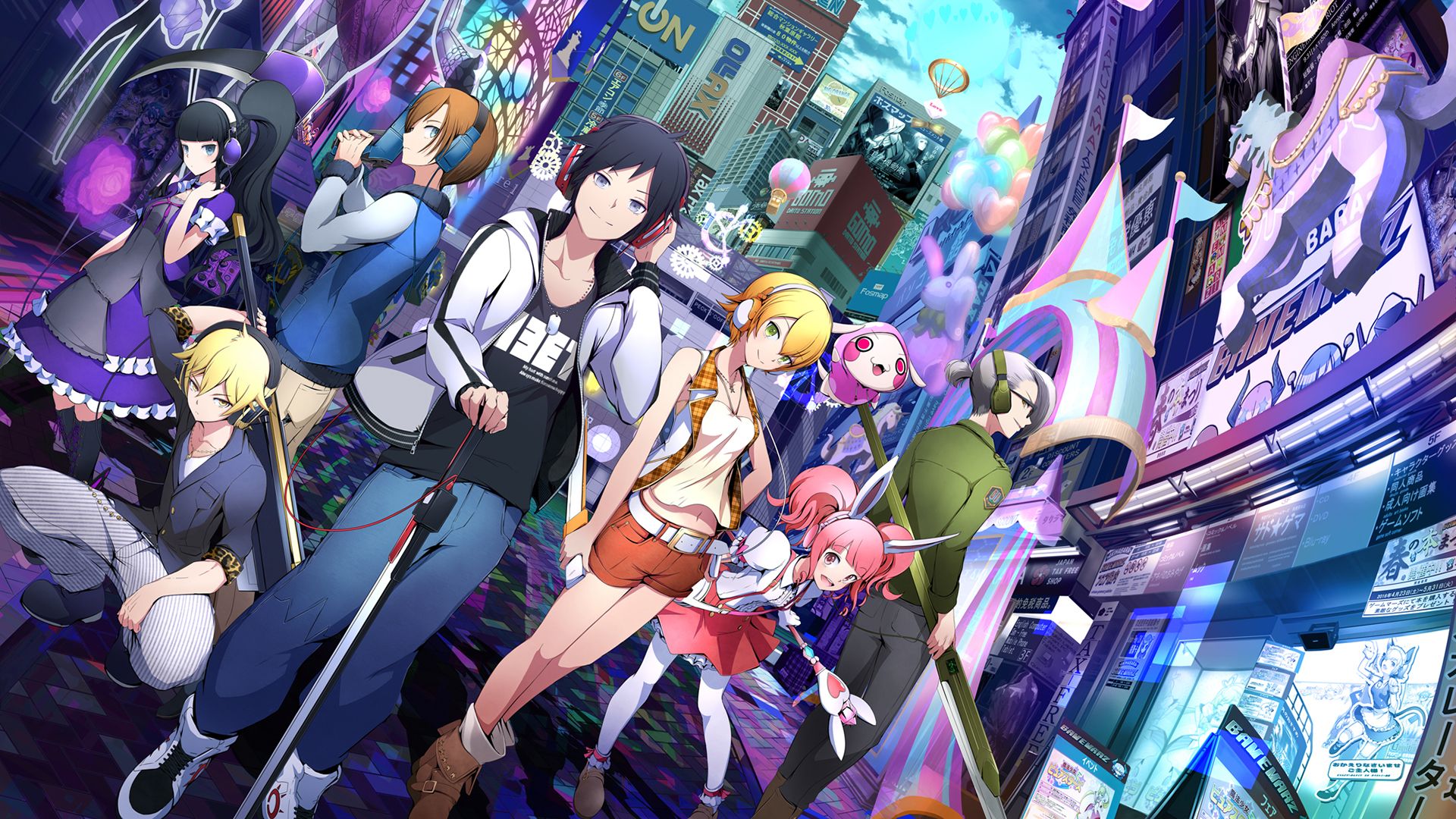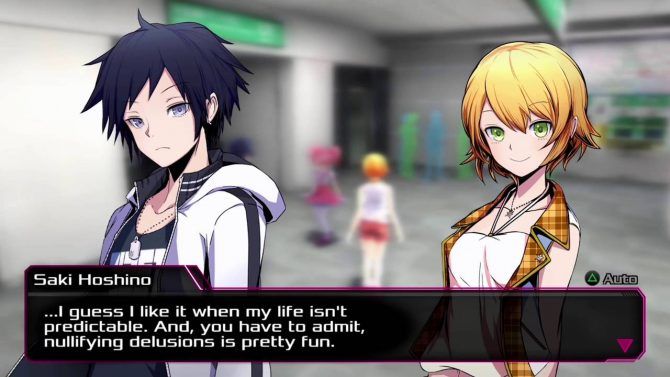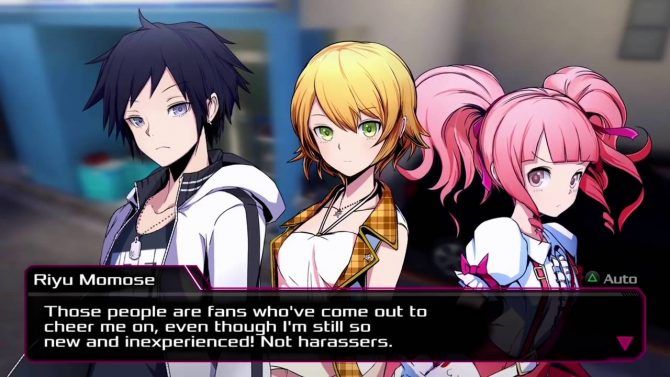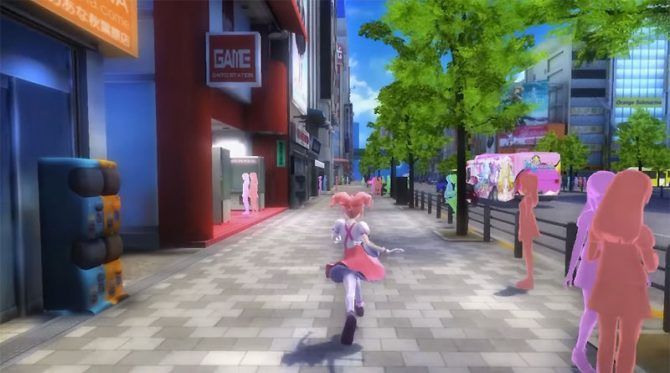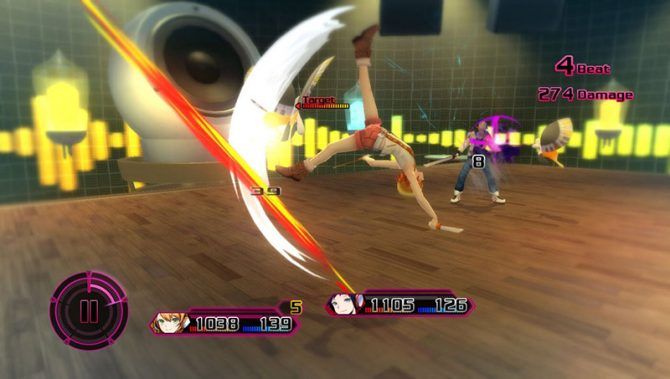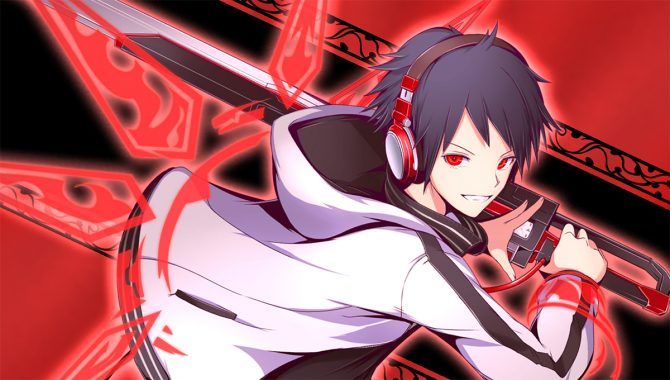To some western JRPG fans, the district of Akihabara in Tokyo, Japan can seem like a dream come true. It's a place where the streets are lined with stores and cafes that fulfill the need of any type of otaku. What better setting for an RPG, right? Well, not exactly...
I had a lot of hope for Acquire's newest RPG Akiba's Beat when it was first announced. The game was said feature a group of teenagers running around solving disturbances around the Akihabara district, a place I have yet to visit myself, while including action RPG battle mechanics and a deep story. However, while it might be true that Akiba's Beat presents an interesting premise with clever writing and a fun cast of characters, the game ends up failing at everything fans may want out of an action RPG.
The player will assume the roll of Asahi Tachibana, a NEET whose only real care in the world is playing video games and watching anime. Quickly it's made clear that Asahi is not very reliable. He is constantly running late and wants to take the lazy way out of every tough situation. Our main protagonist runs into some strange happenings around the Akihabara district which leads him to meet Saki Hoshino and her familiar, Pinkun.
[pullquote]"Akiba's Beat ends up failing at everything fans may want out of an action RPG"[/pullquote]
Evidently, Saki has been traveling around and shutting down these disturbances that she refers to as "delusions." Once a delusion is discovered, a door appears where the characters can enter into the "Delusionscape," an alternate dimensional dungeon that contains an end boss known as the "Grand Phantasm." Meeting new party members and finding Delusers will pretty much take up the remainder of the game's story.
Finding these Delusers is not very difficult given that the characters are stuck in a repeating Sunday. So if that sounds confusing, it definitely is. I'll try to clarify, even though Sunday is repeating, the theme of Akihabara will change. For example: If there is a maid delusion, the player will see maids around town and more people talking about them.
[pullquote]"the story and characters are the best part about Akiba's Beat."[/pullquote]
However, that's not to say the story or themes become dull. Instead, the story and characters are the best part about Akiba's Beat. For someone who understands otaku references and internet slang, this game will make you laugh quite often at the situations these characters get themselves in. Such as a scene where Saki admits that she likes to imagine she's in a music video when she's executing her special move in battle (we'll get to that later) and Asahi quickly makes fun of her for it. That would normally be enough, but later on in the story he describes the term "Chuuni" to her and brings up that often people who are chuuni pretend they are in a music videos.
These interactions between the characters and the fun they poke at otaku culture make the game's story rather enjoyable, but it might only work for the generally small audience of players that will understand the niche references. In addition to the story, there are side stories where Asahi can spend some one-on-one time with another member of the party. These missions are optional and pop up randomly throughout the campaign, but they do offer a chance to learn more about the characters.
The issue with the mission structure of Akiba's Beat is the constant back and forth the game has you do in order to complete the missions around Akihabara. Whether it be following a certain character or participating in a side mission, it's quickly discovered that perhaps the Akihabara district was a little too small for the scope of the game, I can't even tell you how many times I went to "Junk Street" in order fulfill a mission request. Thankfully, the game has a warp feature that allows the player to warp to different save points.
Now we've come to the Delusionscapes, these are the dungeons that take on the theme of the delusion they are based on, such as, the idol delusion will be idol themed and so on. However, these dungeons are extremely basic and reminiscent of the ones seen in game's like Persona 4 on PlayStation 2. The player is required to run through a few floors in order to reach the Grand Phantasm who holds the key to destroying the delusion.
Battles are encountered when the player makes contact with an enemy in the dungeon. Most of the time spent fighting will be mashing the square button to attack and then trying to throw in a special skill using the X button. The issue here is that there are no real combo systems in place used to string together attacks and skills. Instead the characters completely independent of each other, which makes the combat feel slow and dated.
There are also some pretty strange inclusions to the fighting system as well, such as, by pressing O and X the character will jump in battle. This is an action that I rarely used outside of the tutorial. Also, you're allowed to aim attacks up and down, but it doesn't really change the attack very much in terms of hitting a target.
In addition to these mechanics, there is an extremely overpowered special attack called "Imagine Mode." Imagine Mode allows you to endlessly attack without having to wait for your attack to recharge. This special builds as the players lands attacks in battle and once executed initiates a rather cool theme song to fight to. However, this song portion can last quite a long time, which made some boss battles a breeze.
It's easy to see that the combat and dungeons in Akiba's Beat suffer dated mechanics and slow combat, but the game has so much character and personality in it that it's possible to push through the fighting portions of the game to progress the story. That's what I feel happened during my time with Akiba's Beat, the English voiceover complimented the localization well and allowed me to simply leave the conversations on auto mode and enjoy the story.
[pullquote]"Akiba's Beat caters to the niche audience who will definitely have a good time discovering the ins and outs of Akihabara"[/pullquote]
Akiba's Beat caters to the niche audience who will definitely have a good time discovering the ins and outs of Akihabara through an entertaining and interesting story. However, hardcore RPG fans will be disappointed with the combat and dungeon exploration that they're probably used to seeing in PS2 and early PS3 games. There is fun to found in Akiba's Beat for those who wish to give it a try, but it will most likely be added to the backlog and quickly forgotten.

